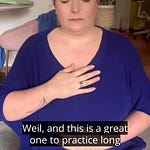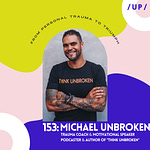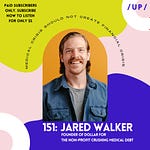In this episode, Lauren sits down with Dr. Harold Kraft, owner and operator of LaserMD Pain Relief in Southern California.
With a background in anesthesiology and engineering, he has been working in groundbreaking Class 4 laser technology to treat and cure various forms of pain and injury, from neuropathy, arthritis, CRPS, and sciatica to fibromyalgia, PTSD, and TBI (traumatic brain injury). Sometimes in just a few short treatments, he has observed incredible results and reduced symptoms – and, in many cases, eliminated or bypassed the need for prescription opioids. While his practice thrives, he has plans to make laser therapy (which has been common in veterinary work for many years) more accessible and affordable to the average person – and continues to offer life-changing treatment to the masses.
Listen in as Dr. Kraft shares:
- how laser therapy is non-invasive and has little to no side effects, but can have incredible anti-inflammatory and nerve growth/repair results; in PTSD or Alzheimer’s, it can assist the brain in developing new circuits
- that in terms of pain relief, he has observed a genetic link (through the maternal side) to a patient’s receptivity to treatment
– 3 out of 5 tend to see results; this same link does not seem to apply with regard to PTSD/TBI, in which the odds of benefit from treatment are, across the board, “nothing short of stunning”
- that his practice is completely unique in that he uses ONLY laser treatment; he no longer prescribes pain me dication or gives injections for pain
- that many of his patients have come to him after having “failed” to manage their pain in every other case
- that the pendulum has swung too far away from opioids for people who need them
– some of this need is entirely legitimate, and the difficulty in acquiring pain medications for those in need is a crisis of its own
- how his wife’s dog, Harley, is the reason he discovered hot laser therapy
- that he tested the laser on himself first, and saw incredible results in treating hip bursitis
-his belief that high - dose laser will, in a few years, become the gold standard of treatment for PTSD and TBI
- that previous studies of hot laser therapy in treating PTSD and TBI showed a 30
- 60% decrease in depression, and appeared to entirely eliminate nightmares and sleep disturbances
- that, based on his research, he estimates 1 million veterans and 5 million civilians
in the US suffer from PTSD; females suffering from PTSD are most often survivors of sexual trauma
- that, based on the treatments he’s been offering to PTSD patients over the last year, he’s seen a 30
- 100% reduction in depression, along with the elimination of sleep disturbances
- that he needs funding and investment to continue genetic research and to scale in the field to create a PTSD/TBI mobile laser clinic; “there is tremendous potential – it just needs to be developed”
- that laser treatment for PTSD is not currently covered by insurance; laser treatment for pain and neuropathy are sporadically covered
- that the VA is flawed, and unlikely to be early adopters of hot laser PTSD treatment
-that the US healthcare system is terribly flawed, and that the introduction of health insurance companies has ended as a bad experiment that we’re sort of locked into; that the VA is an example of a medicare for all system that has had equally bad results; and that the major problem with both models comes down to TOO much trust in physicians (and physicians having too much belief in their infallibility)
- that the key to fixing the system is education
- that health insurance is not the same as health care, and that health care is not the same as prevention; prevention is the most important of these, and could allow us to treat people at substantially reduced cost
-that, though he is not an expert on depression itself, he sees hot laser therapy as a potential treatment for chronic and major depression
- that he’d love to see hot lasers in every primary care practice, and that he is developing a laser for that purpose right now
-perhaps most amazing about hot laser treatment is that, unlike many opioids, it is not a Band-Aid; rather, it treats a root cause
- that patients should push their insurers to cover treatments like hot laser (if it is not already covered on their plan)
- why patients should keep a journal: so they can speak the same language as their physicians, who are often data-driven














Share this post